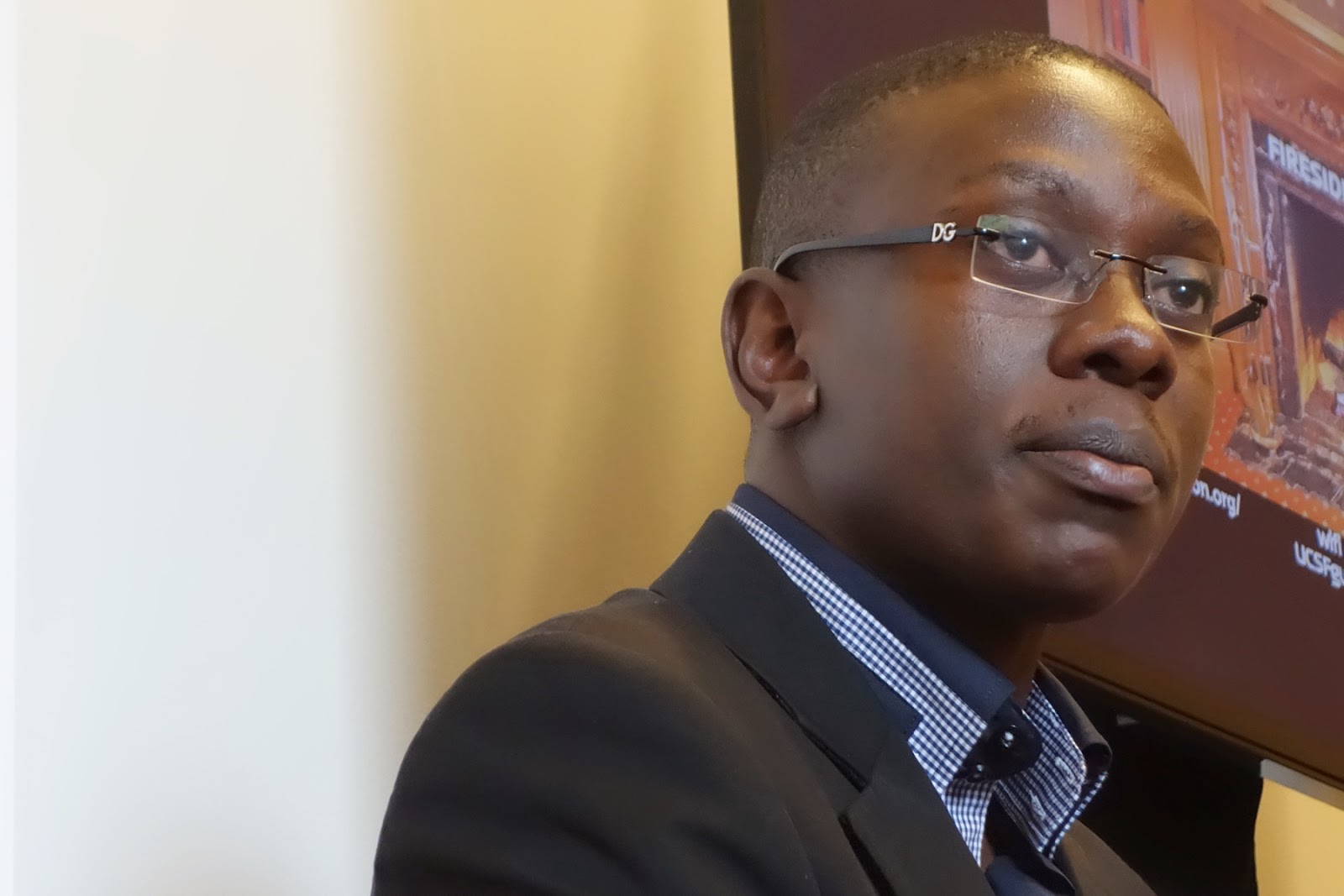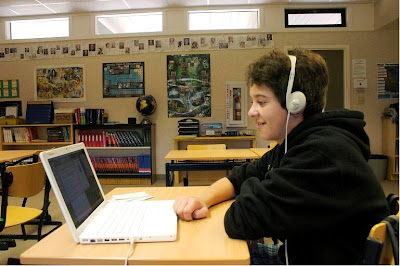Recently we asked for some of the thousands of people with disabilities using Bookshare.org to share how it has helped them. These thoughts from Chancey Fleet were particularly eloquent and I wanted to share it with you all.
For most students, the freshman year of college is a time for discovering intellectual strength, getting behind a cause or two, and exchanging rapid-fire theories on life, the universe and everything at 3 AM when you should be writing the paper that's due at 9.
As a blind freshman, I managed to do all those things, but I always came up against one immense barrier: I couldn't just pick up a book and read it. I got my textbooks on tape, and read them too, when the narrator didn't put me to sleep. I took pathetic notes; you can't write in a tape's margins. I developed a trademark nod-and-smile for anyone who tried to recommend a book to me, because with my friends reading such a variety of interesting things, and the Library of Congress only producing a couple hundred Braille books a year, chances were I couldn't get my hands on a recommendation. Once in a while, if I'd rather die than miss out on reading something, I'd scan it into electronic form myself: what a rush, what a feeling of freedom, but only when I found the time.
Those days are gone. For $50 a year I can access over 20.000 books, instantly. I can find out what Foucault thought about American prisons; how the Simpsons illustrate concepts in philosophy; or, if I download one of the fifty or so papers on Bookshare, exactly what's going on in the world today. Gone is the de facto censorship that resulted from publishers of texts in alternative formats trying to cater to their largest demographic. Since any user can contribute a scanned book to the site, it takes just one person to add a book to the collection. This means a dizzying array of material for people in highly specialized academic and technical fields, books for leisure readers with every fictional or nonfictional taste, and support and information for people as diverse as the average campus: a user can easily find literature relevant to his or her religious, political, ethnic and sexual identity, as well as definitive collections on disability, career-building, and life skills.
A Bookshare text is a book without barriers in more than one way. It can be read in large print, with synthesized speech, or in refreshable or embossed Braille. (Bookshare partners with Braille Institute to provide, at cost, Braille hard copies of books for subscribers who need them). It can be browsed, bookmarked, and searched with ease; and, if paired with a program like JAWS or Kurzweil, easily lends itself to annotation and outlining.
Bookshare builds citizenship in two fundamental ways. It transforms subscribers from passive beneficiaries into instant volunteers: anyone can help by submitting or proofreading books. And Bookshare puts at the disposal of its subscribers the information they need to understand and succeed in their classes, their community, and their world. Bookshare has made reading more possible and pleasurable for me, and has allowed me to use more of my time at college for learning, and less for the busy-work of tracking down and finding ways to access printed resources.
Chancey Fleet
William & Mary student
Bookshare.org Volunteer since 2001
For most students, the freshman year of college is a time for discovering intellectual strength, getting behind a cause or two, and exchanging rapid-fire theories on life, the universe and everything at 3 AM when you should be writing the paper that's due at 9.
As a blind freshman, I managed to do all those things, but I always came up against one immense barrier: I couldn't just pick up a book and read it. I got my textbooks on tape, and read them too, when the narrator didn't put me to sleep. I took pathetic notes; you can't write in a tape's margins. I developed a trademark nod-and-smile for anyone who tried to recommend a book to me, because with my friends reading such a variety of interesting things, and the Library of Congress only producing a couple hundred Braille books a year, chances were I couldn't get my hands on a recommendation. Once in a while, if I'd rather die than miss out on reading something, I'd scan it into electronic form myself: what a rush, what a feeling of freedom, but only when I found the time.
Those days are gone. For $50 a year I can access over 20.000 books, instantly. I can find out what Foucault thought about American prisons; how the Simpsons illustrate concepts in philosophy; or, if I download one of the fifty or so papers on Bookshare, exactly what's going on in the world today. Gone is the de facto censorship that resulted from publishers of texts in alternative formats trying to cater to their largest demographic. Since any user can contribute a scanned book to the site, it takes just one person to add a book to the collection. This means a dizzying array of material for people in highly specialized academic and technical fields, books for leisure readers with every fictional or nonfictional taste, and support and information for people as diverse as the average campus: a user can easily find literature relevant to his or her religious, political, ethnic and sexual identity, as well as definitive collections on disability, career-building, and life skills.
A Bookshare text is a book without barriers in more than one way. It can be read in large print, with synthesized speech, or in refreshable or embossed Braille. (Bookshare partners with Braille Institute to provide, at cost, Braille hard copies of books for subscribers who need them). It can be browsed, bookmarked, and searched with ease; and, if paired with a program like JAWS or Kurzweil, easily lends itself to annotation and outlining.
Bookshare builds citizenship in two fundamental ways. It transforms subscribers from passive beneficiaries into instant volunteers: anyone can help by submitting or proofreading books. And Bookshare puts at the disposal of its subscribers the information they need to understand and succeed in their classes, their community, and their world. Bookshare has made reading more possible and pleasurable for me, and has allowed me to use more of my time at college for learning, and less for the busy-work of tracking down and finding ways to access printed resources.
Chancey Fleet
William & Mary student
Bookshare.org Volunteer since 2001



Comments